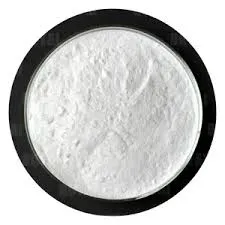
Дек . 25, 2024 06:42 Back to list
mhec-methhyl hydroxyethyl cellulose factory
The MHEC and Its Importance in Modern Manufacturing
Methyl Hydroxyethyl Cellulose (MHEC) is a versatile polymer derived from cellulose, primarily utilized in various industrial applications due to its unique properties
. As a factory producing MHEC, understanding its synthesis, characteristics, and applications is crucial for using this compound effectively in different sectors.Synthesis of MHEC
The production of MHEC involves the chemical modification of cellulose, a natural polymer extracted from plant cell walls. The process typically begins with treating cellulose with an alkali solution to create sodium cellulose, followed by etherification with methyl and hydroxyethyl groups. This alteration results in MHEC, which possesses increased solubility and stability compared to its parent compound. The degree of substitution (DS) of the methyl and hydroxyethyl groups affects the properties of MHEC, influencing factors such as viscosity, solubility, and thermal stability.
Characteristics of MHEC
MHEC exhibits several distinctive characteristics that make it suitable for various applications. One of the most notable properties is its ability to form gels and stabilize emulsions, making it an important ingredient in the cosmetic and pharmaceutical industries. Its thickening and film-forming capabilities allow for improved texture and consistency in formulations.
Moreover, MHEC is non-ionic, meaning it does not interact with other ions present in a formulation, which contributes to its stability in different pH conditions. This property makes it an excellent choice for products that require a consistent performance across various environmental conditions.
Another advantage of MHEC is its biodegradability, making it an environmentally friendly option compared to synthetic polymers. This characteristic is particularly appealing in today’s market, where sustainability is of increasing importance to consumers and manufacturers alike.
Applications of MHEC
mhec-methhyl hydroxyethyl cellulose factory

MHEC is widely used across various industries, demonstrating its versatility. In the construction sector, it is utilized as a thickener and water-retaining agent in mortars and adhesives. The addition of MHEC to cement mixtures enhances workability, allows for longer open times, and improves adhesion, which is vital in the construction of buildings and other structures.
In the food industry, MHEC acts as a stabilizer and emulsifier, providing improved texture for products such as sauces, dressings, and dairy products. Its ability to retain moisture helps to extend the shelf life of food products, making it a valuable ingredient in food formulations.
The pharmaceutical and cosmetic industries also benefit from MHEC's properties. It is commonly used in ointments, creams, and lotions due to its emulsifying and thickening capabilities. Additionally, MHEC's film-forming properties allow for the creation of protective barriers on the skin, enhancing the performance of topical medications.
Challenges and Future Prospects
While the benefits of MHEC are clear, manufacturers face challenges, such as maintaining consistent quality during production. Variability in the raw materials or changes in production conditions can lead to differences in the final product's performance. Investing in advanced manufacturing techniques and quality control measures is essential to mitigate these issues.
Looking forward, the demand for MHEC is expected to grow, driven by trends toward sustainability and eco-friendly products. As consumers become more aware of the environmental impacts of their purchases, manufacturers will likely seek biodegradable alternatives to traditional synthetic materials. MHEC’s renewability and versatility position it well to meet these emerging demands.
Conclusion
The MHEC factory is not just a hub of production but a vital player in various industries worldwide. With its unique properties, MHEC stands out as an essential component in construction, food, pharmaceuticals, and cosmetics. As the market evolves, the focus on sustainable manufacturing and high-quality production processes will ensure that MHEC continues to play a significant role in industrial applications. With advancements in research and production techniques, MHEC's future appears bright, promising innovations that could further expand its utility across diverse fields.
-
Versatile Hpmc Uses in Different Industries
NewsJun.19,2025
-
Redispersible Powder's Role in Enhancing Durability of Construction Products
NewsJun.19,2025
-
Hydroxyethyl Cellulose Applications Driving Green Industrial Processes
NewsJun.19,2025
-
Exploring Different Redispersible Polymer Powder
NewsJun.19,2025
-
Choosing the Right Mortar Bonding Agent
NewsJun.19,2025
-
Applications and Significance of China Hpmc in Modern Industries
NewsJun.19,2025







